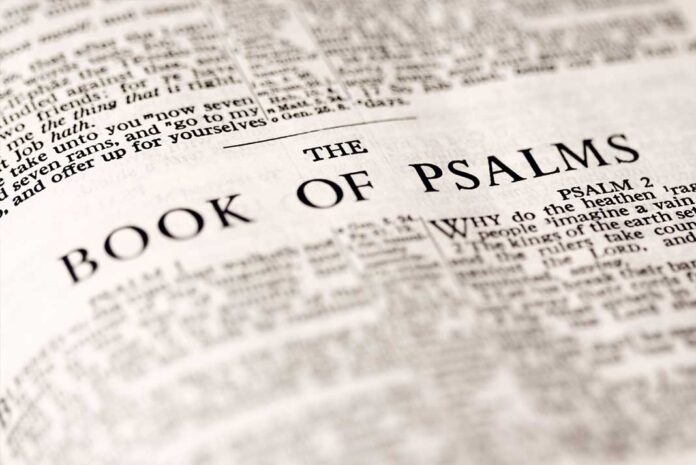In this post, we will examine the placement of Psalm 116 within the corpus of the Psalter and its elucidation. Then I will explore the genre of Psalm 116 and how this can help us better understand the authorial intent of the psalmist. These areas of studying I believe will provide gravity and illumination about the purpose of this thanksgiving psalm.
The Psalter has a unique structure within the canon of Scripture. “From early times the psalms were grouped into five “books.” The exact antiquity of the fivefold division of the Psalter cannot be determined. The earliest mention of this organization in Christian literature is in Hippolytus (ca. a.d. 200).”[1] The structure of the Psalter is the following 1-41(Book I), 42-72 (Book II), 73-89 (Book III), 90-106 (Book IV) and 107-150 (Book V). The Psalter and the Torah are comprised of five books. The Torah represents the moral guide of Israel and the Psalter represents the spiritual guide of Israel. Psalm 116 is placed in Book V of the Psalter. The arrangement of Psalm 116 was grouped and placed with the historical background of the Torah. “Book I emphasizes the themes of creation, sin and salvation, it supposedly corresponds to Genesis which prominently displays those same themes. Furthermore, because the psalms of Book II are weighted with the theme of redemption, it is said to correspond to the Book of Exodus. This arrangement connects Book III with Leviticus because of their common emphasis on the sanctuary, Book IV with Numbers because of the prominence in each of Moses and Israel’s wandering in the wilderness and Book V with Deuteronomy because of the emphasis in each on the Word of God.”[2] The placement of Psalm 116 in the Deuteronomistic portion depicts the attitude of thanksgiving the Israelites displayed in the midst of wilderness wanderings and the death of their great leader Moses. Psalm 116 resonates throughout the annals of time about having an attitude of thanksgiving.
The Elucidation of Psalm 116
Psalm 116 has been categorize as a thanksgiving psalm. The process of elucidating Psalm 116 can be found in Walter Bruegemann stages of life. Brueggeman explains there are three stages of life orientation, disorientation and new orientation. The Psalter can minister to us with songs of praise (orientation), songs of lament (disorientation) and songs of thanksgiving (new orientation). “A strong case can be made for the structural coherence of Psalm 116 as a literary unit, but there are also reasons for treating verses 1-9 independently, as the Septuagint did by dividing the poem into two psalms. As one of about a dozen thanksgiving psalms, this passage is spoken from a post-crisis perspective, but the psalm offers no real clue as to the nature of the problem(s) that prompted the poet’s “supplications.”[3] (Mead, 2015). The verses 10-19 of offer expressions of gratitude for the marvelous works displayed by YWHW.
The Genre of Psalm 116
The Psalter contains a litany of category’s that were the spiritual hymn book of the nation of Israel. The category of psalms are the following praise psalm during times of orientation, lament psalm during times of challenge and thanksgiving psalm during times of new orientation. “This hymn of thanksgiving is strikingly personal from beginning to end. Its use in this Hallel collection in connection with the main feasts probably indicates that it was associated with the payment of individual vows.”[4]
The Helpfulness of Psalm 116
The psalmist gives homage to YHWH as the supreme being. This is a important concept of giving thanksgiving to YHWH. Because the psalmist is acknowledging there is a supreme being better than the finite human being. “This is a thanksgiving psalm; it is not certain whether David penned it upon any particular occasion or upon a general review of the many gracious deliverances God had wrought for him, out of six troubles and seven, which deliverances draw from him many very lively expressions of devotion, love, and gratitude; and with similar pious affections our souls should be lifted up to God in singing it.”[5]
In conclusion, Psalm 116 provides words encouragement during the times of orientation, disorientation and new orientation. The motif of thanksgiving is needed during times of isolation, depression, unemployment, homelessness and systemic racism. Our worldview determines how we view life during times of orientation, disorientation and new orientation. The Psalter can play integral role in helping us adapt to the uncertainties of life.
Robert Caruth Jr, a native of Peoria, accepted Christ at the age of 14. He had a penchant for learning the word of God early on in his Christian journey. This proved to be the capstone solidifying his walk with the Lord. Pastor Caruth has been married to Melanie Caruth for 35 years. This conjugal union has produced their only child Fallon who is a miracle from the Lord. Pastor Caruth earned a Bachelor of Science in Biblical Studies from Moody Bible Institute in Chicago, Illinois. He is currently finishing up his Masters Degree at Moody Theological Seminary. He serves as the teaching pastor and visionary leader of The Church of Living God Community Church in Richmond Heights, Missouri.
Bibliography
[1] J. E. Smith, (1996). The wisdom literature and Psalms (p. 195). Joplin, MO: College Press Co.
[2] R. Ellsworth, (2006). Opening up Psalms (p. 10). Leominster: Day One Publications.
[3] J. Mead, (2015, September 15). Sixteenth Day After Pentecost. https://www.workingpreacher.org/commentaries/revised-common-lectionary/ordinary-24-2/commentary-on-psalm-1161-9-4
[4] C. F. Pfeiffer, (1962). The Wycliffe Bible Commentary: Old Testament (Ps 115:16). Chicago: Moody Press.
[5]M. Henry, (1994). Matthew Henry’s commentary on the whole Bible: complete and unabridged in one volume (p. 909). Peabody: Hendrickson.













